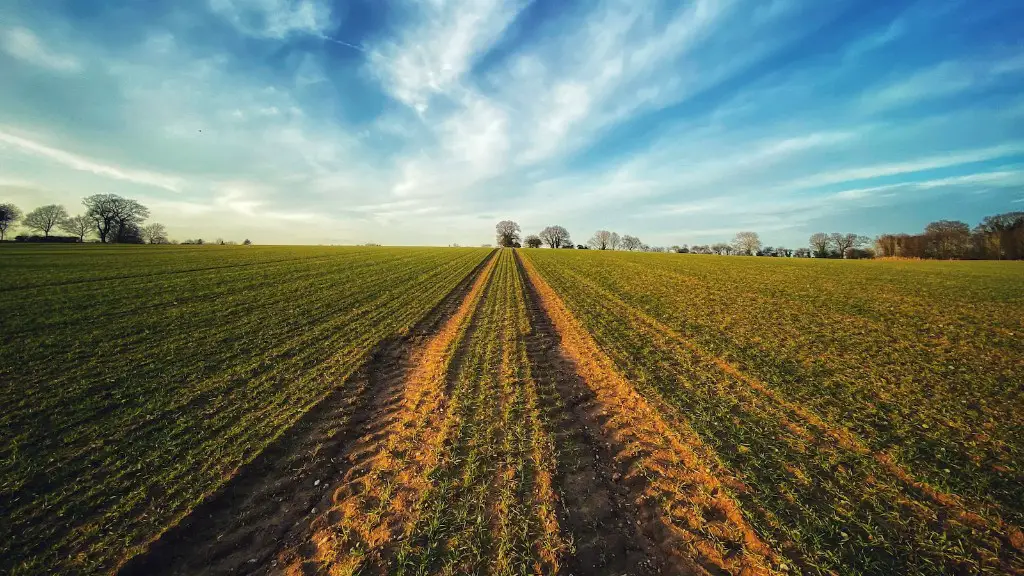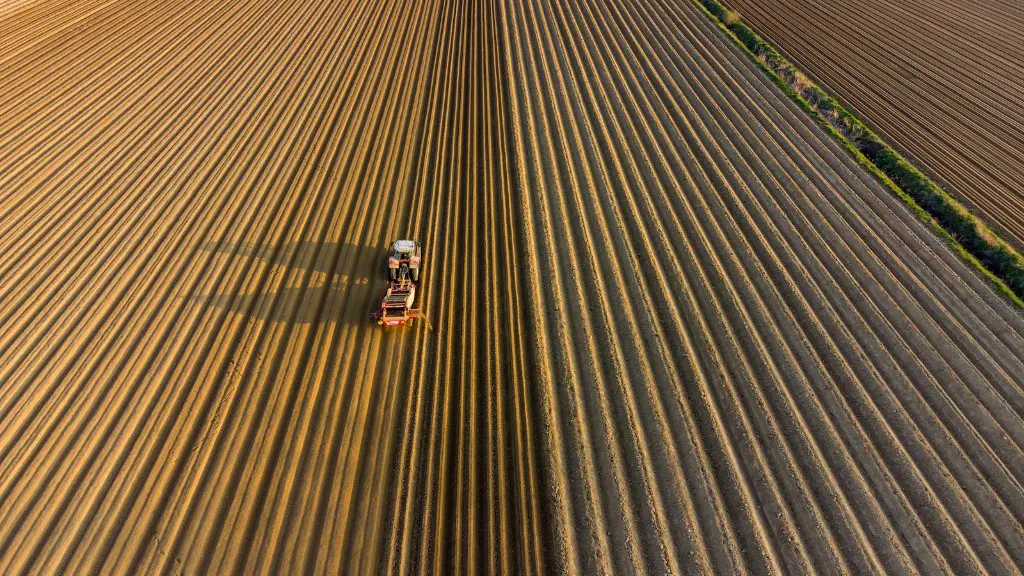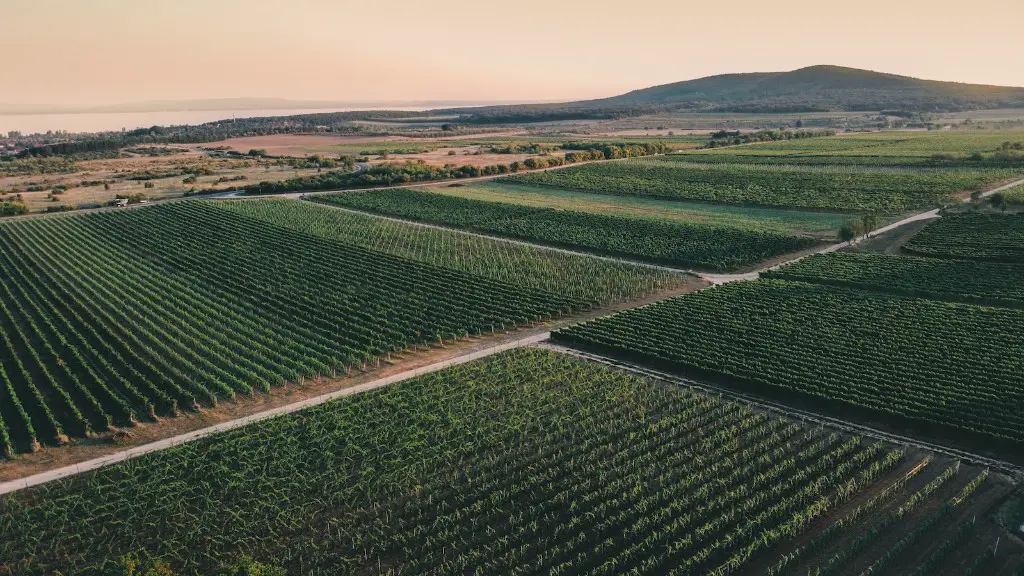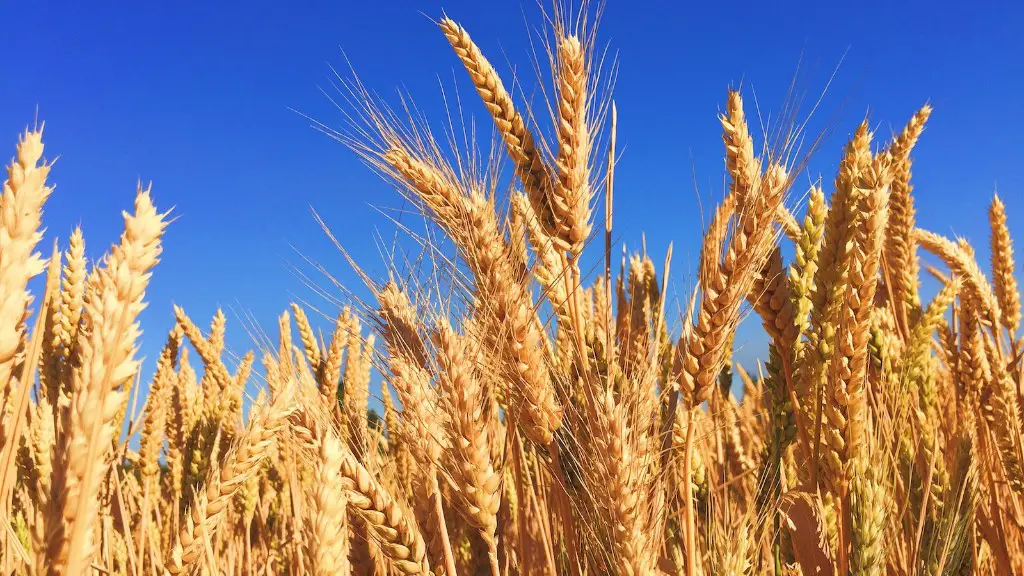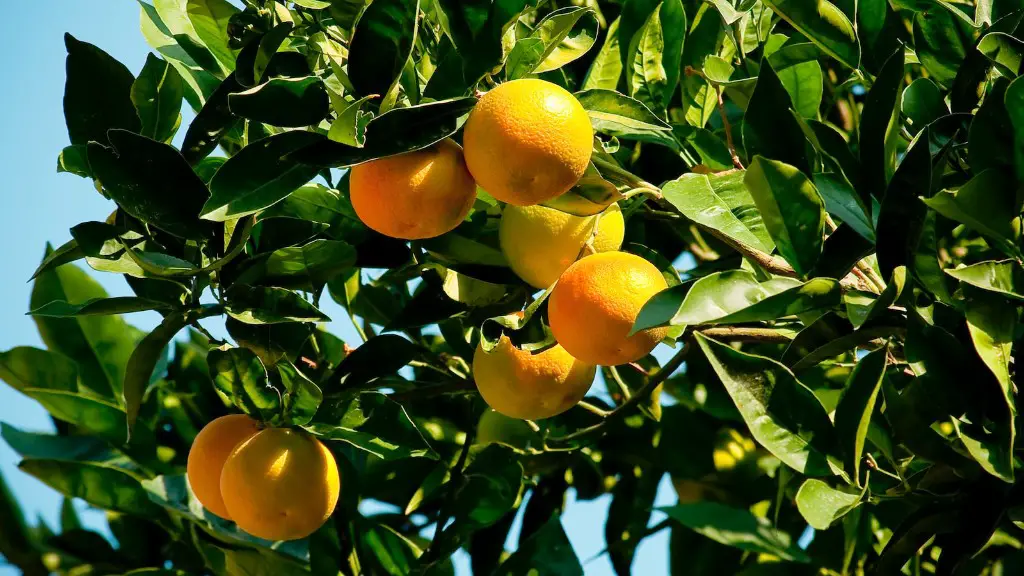The threat to Greek agriculture is multifaceted and includes problems such as water scarcity, soil degradation, and declining crop productivity. These problems are exacerbated by climate change, which is expected to bring more extreme weather conditions to the country. Greek farmers are struggling to adapt to these changes, and many are leaving the profession altogether. The future of Greek agriculture is uncertain, but it is clear that something must be done to address these challenges.
One of the biggest threats to Greek agriculture is the lack of water. With climate change, Greece is predicted to have even less water in the future. This will make it difficult for farmers to grow crops and could lead to food shortages. Other threats to Greek agriculture include soil erosion and pests.
What challenges were Greek farmers faced with?
Ancient Greek farmers faced many challenges, including the land being mostly mountainous, rocky soil, and scarce water. The rainy season was mostly during the winter months, which made it difficult to grow crops.
Farming in ancient Greece was difficult due to the limited amount of good soil and cropland. It is estimated that only twenty percent of the land was usable for growing crops. The main crops were barley, grapes, and olives. Grain crops, such as barley and wheat, were planted in October and harvested in April or May.
How did agriculture affect ancient Greece
The ancient Greek city-states were able to flourish because of agriculture. Farming skills allowed the Greeks to produce more food than what they immediately needed. This extra food meant that most people in ancient Greece did not have to constantly worry about whether there would be enough food.
The plains of Thessaly, Macedonia, and Thrace are the primary agricultural regions of Greece. The most common crops grown in these areas are corn, wheat, barley, sugar beets, cotton, and tobacco. Greece is one of the world’s leading producers of olives and feta cheese, and also produces significant amounts of fruits, vegetables, and wine.
What 2 factors limited Greece’s agriculture?
Greece’s agricultural potential is hampered by several factors, including poor soil, inadequate levels of precipitation, and a landholding system that has served to increase the number of unproductive smallholdings. Additionally, population migration from the countryside to cities and towns has further reduced the potential for agricultural production in Greece.
After the Civil War, many farmers found it difficult to make a living due to drought, plagues of grasshoppers, boll weevils, rising costs, falling prices, and high interest rates.
What were the main causes of the decline of Greek?
The Ancient Greek city-states were constantly at war with each other, which made it difficult for them to unite against a common enemy. The poorer classes in Greece began to rebel against the aristocracy and the wealthy, which made it even more difficult for the city-states to unite.
A severe drought that lasted for over 300 years may have been the cause of the collapse of several ancient Mediterranean cultures, including Greece, new research suggests.
Scientists analyzed samples of tree rings from the Mediterranean region and found that there was a sharp decrease in rainfall starting around 3,200 years ago. This extended drought would have had a major impact on agriculture and water resources, leading to the decline of these civilizations.
The findings of this study underscore the importance of water resources in sustaining civilization, and highlights the vulnerability of our own society to climate change. With the global population continuing to grow, it is essential that we take steps to mitigate the effects of climate change and ensure a stable supply of water for future generations.
How did mountains affect Greek agriculture
The physical geography of ancient Greece was extremely varied, with mountains, valleys, and islands dotting the landscape. This made large-scale farming difficult, and the Greeks were forced to look elsewhere for fertile land. This led to the Greeks becoming a maritime people, sailing the seas in search of new lands.
Farming in Ancient Greece was difficult due to the hilly terrain. Some farmers built wide earth steps into the hills to create more flat land for planting. A few farmers were able to grow wheat and barley, but most grew crops that needed less land, particularly grapes and olives.
Did Greece have good agriculture?
Greece is number one in the world in farming output! The country produces large quantities of rice, wheat, cotton, meat, poultry, eggs and fishery products. This makes Greece a great place to live and work if you are interested in the agricultural industry. There are plenty of opportunities to get involved in farming in Greece, whether you are a farmer yourself or you work in the agricultural industry. Greece is a great place to live and work if you are interested in the agricultural industry.
Greece is a country with a wide variety of crops and livestock products. Fisheries are also playing an important role, while forestry plays a secondary role. The country has a long tradition of farming, and the climate and soil are conducive to a variety of crops. Greece is also a major producer of olive oil and wine.
Is the Greek economic crisis over
Greece appears to have experienced a very deep recession in 2020 and even under optimistic assumptions, a full recovery will take some time beyond 2021. In addition, the recession and the cost of the measures to mitigate it have already led to a further sharp rise of Greece’s already exorbitantly high public debt.
The full extent of the recession is still unknown, but it is clear that it has been severe. The Greek economy contracted by an estimated 9.0 percent in 2020, and is expected to contract by a further 3.5 percent in 2021. Even under optimistic assumptions, it will take some time for the economy to return to its pre-recession level.
The rise in public debt is a particular concern. Greece’s public debt was already very high before the recession, at around 180 percent of GDP. The recession and the measures taken to mitigate it are expected to push the debt up to around 200 percent of GDP by the end of 2021.
This is a very difficult situation for Greece. The recession has been deep and is expected to continue for some time. The public debt is already very high and is expected to rise further. It is clear that Greece will need support from the international community to recover from this recession.
As the hunger crisis in Greece continues, figures show that forty percent of people living in Greek refugee camps are being denied food as a result of the Greek government’s decision to discontinue the provision of food to people who are not in the asylum procedure. This is a devastating situation for the people affected, many of whom are already struggling to survive. The Greek government must urgently reverse this decision and provide food for all those who need it.
What are the top 3 agricultural products in Greece?
Main Greek Agricultural Products
Olive Products: Greece (with 276 million trees) ranks third in the world for the number of olive-trees, following Spain and Italy. The annual yield from these trees is about 442,000 tons of olives.
Vine Products: Greece is the world’s seventh-largest wine producer with an estimated production of 2.85 million hectoliters in 2010. The majority of Greek wines are dry whites.
Fruit and Vegetables: Greece is one of the world’s leading producers of pistachios, with an annual production of around 18,000 tons. The country is also a major producer of tobacco, with an annual production of around 40,000 tons.
Cotton: Greece is one of the world’s leading producers of cotton, with an annual production of around 140,000 tons.
Livestock production: Greece is a major producer of livestock, with an annual production of around 1.5 million tons of meat and 2.5 million tons of milk.
Cereals: Greece is a major producer of cereals, with an annual production of around 4.5 million tons.
The population decline in Greece is one of the most severe in the world. The main reason for this is the financial insecurity that many couples face. With the high cost of living and the uncertainty of the future, many couples are simply too scared to have children. This is a major problem for Greece, as the fertility rate is now down to about 1.3 children per family. This is far below the replacement rate of 2.1 children per family. If this trend continues, Greece will eventually face a population collapse.
What are the two main factors that influence agriculture
The soil is one of the most important factors in agriculture. The soil needs to be deep and full of nutrients in order for agriculture to develop. The climate is also a very important factor. Sunshine, humidity, and rainfall are all important factors that influence agriculture.
The Greece GDP From Agriculture is projected to trend around 175000 EUR Million in 2024 and 178000 EUR Million in 2025, according to our econometric models. This suggests that the agricultural sector will continue to be a vital part of the economy in the coming years. However, it is worth noting that these projections are based on current trends and could change if unforeseen circumstances arise.
Conclusion
The main threats to Greek agriculture are climate change, water scarcity, soil erosion and competition from imports.
The increasing popularity of large-scale agriculture has put small-scale farmers in Greece at a disadvantage. The government has not provided adequate support to small farmers, who are now struggling to compete with large-scale farmers. This has created a threat to the traditional way of life for many Greeks, as well as to the environmental sustainability of Greece.
